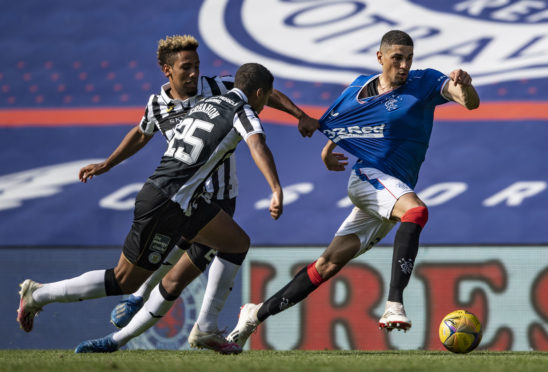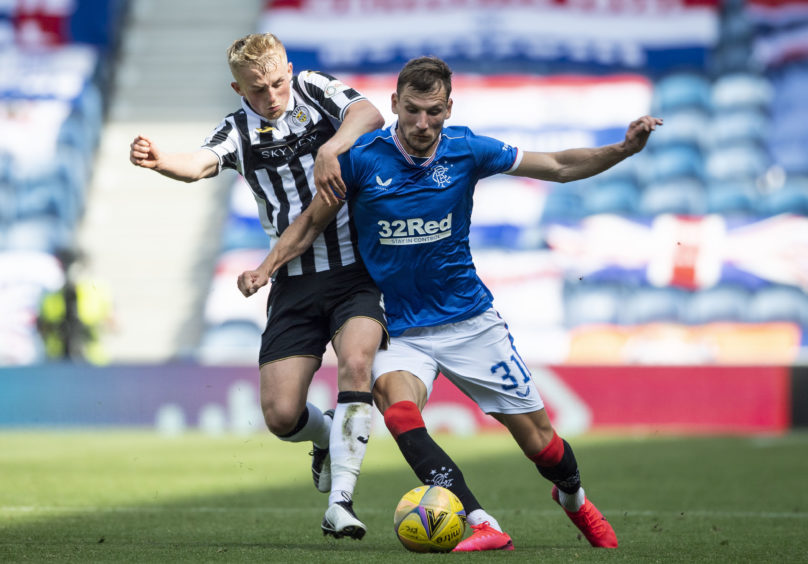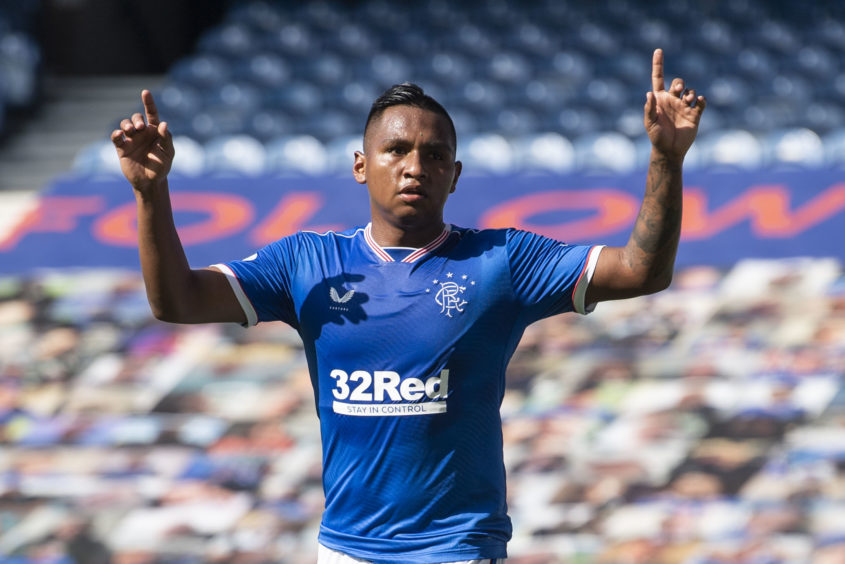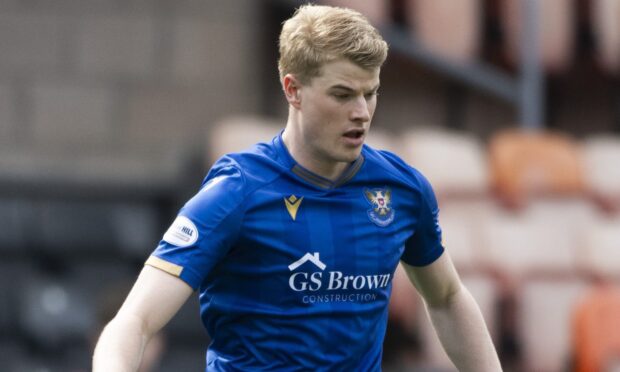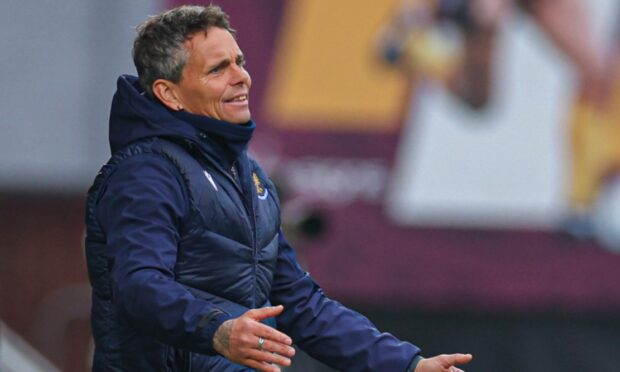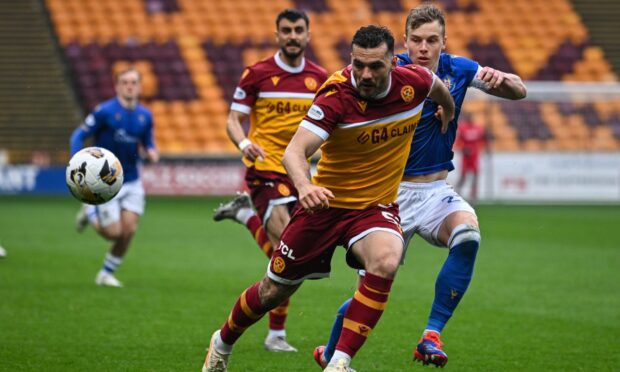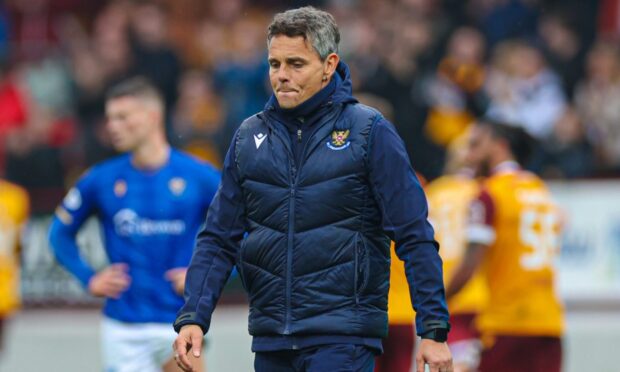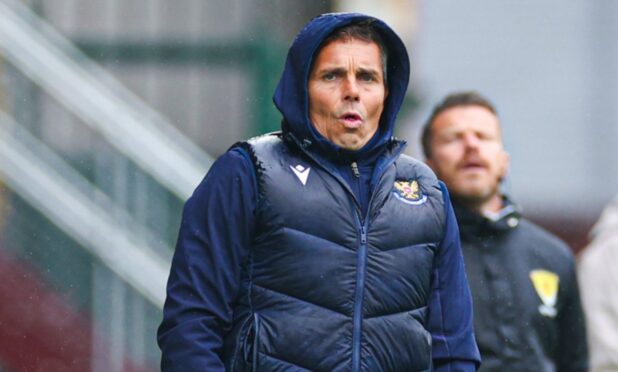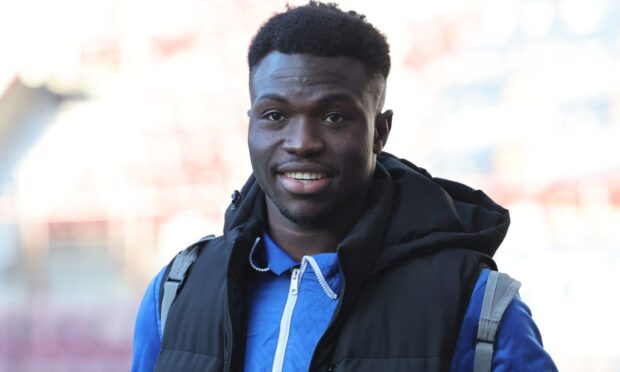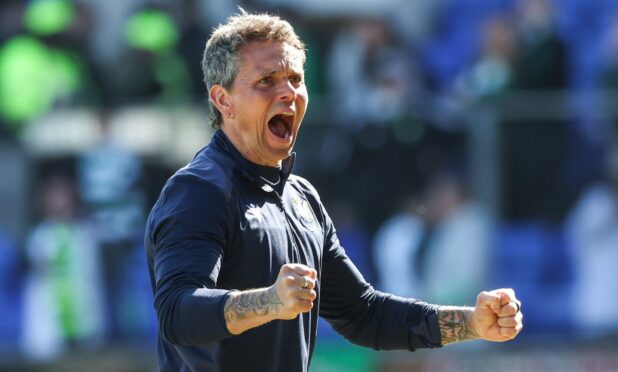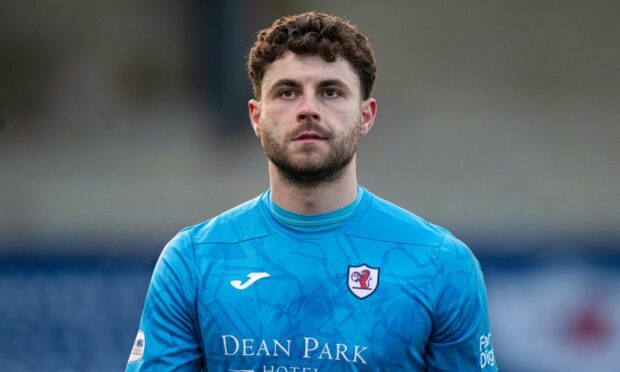St Johnstone are long odds to become the first side to end Rangers’ 100% Premiership record at Ibrox tomorrow night.
It has been a stop-start few weeks for the Perth side, whose weekend match against Aberdeen was postponed as a result of the Dons’ Covid-19 crisis.
There have been no disruptions for their opponents, though. They are two out of two in the league and have yet to concede a goal.
Eric Nicolson breaks down the Gers’ 3-0 win over St Mirren to identify where Perth boss Callum Davidson can seek to gain an advantage over the title contenders.
System
We became used to Steven Gerrard’s favoured set-up last season being a 4-3-3 and that has remained the case at the start of this campaign as well. You rarely see the Rangers wide forwards getting chalk on their boots, with the team’s breadth coming from their full-backs.
There was a significant tweak on Sunday afternoon, though.
The starting system was a 4-2-3-1. It meant Joe Aribo and Ryan Kent were a bit wider than usual, and there was slightly more structure in attack than with the 4-3-3. This was still a typically fluid Rangers formation, though.
Gerrard has also talked recently about the possibility of adopting a 3-5-2 but that will probably stay just talk, certainly for the St Johnstone match.
It is to be hoped that whatever system Davidson comes up with gives them a stronger platform than Jim Goodwin’s St Mirren.
The Paisley team’s 4-5-1 is everything Gerrard and his players have come to expect and every bit as negative as you would imagine, making it just a matter of when rather than if the first goal arrived.
To have any hope at Ibrox you need to turn Rangers’ full-backs, Borna Barisic and James Tavernier, towards their own goal and Davidson’s 5-2-3, or a slight variation of that, gives you a fighting chance of doing that.
Strengths
Those attacking full-backs were effectively wingers at the weekend, which meant by and large Rangers had six players on the pitch whose primary purpose was to get on the front foot and break down a packed defence.
In fact, for the most part it was seven because the two at the base of the midfield, Glen Kamara and Ryan Jack, quickly realised that so few and far between were St Mirren counter-attacks, one of them could often afford to push higher up than they would in a more even contest.
When Rangers are at their best – certainly in a match when they enjoy over 70% possession, which will be the case in most home matches – there are at least five of those seven men inter-changing roles to drag defenders out of position, creating openings even in a crowded box.
As an opposition manager, you would take your chances with Kent or Aribo shooting from distance or trying to beat two or three men on their own. You would be less comfortable when the passing is short and sharp and the quicker football brains and better first touches become the decisive factor.
Weaknesses
There was scant evidence of any in this match – chiefly as a result of St Mirren’s lack of ambition.
When you’re talking about one proper mistake each for the two Rangers centre-backs in the game, that gives you an idea of the Sunday afternoon stroll Connor Goldson and Leon Balogun were allowed.
Goldson was caught on the ball while trying to play out in the first half and a sloppy Balogun pass gave Jonathan Obika the chance of a very rare counter in the second.
The fact that those mistakes were when they were in possession would tend to suggest that if – and it’s a big if – St Johnstone can be braver in their press, commit more numbers and trigger it higher up the pitch, they may get some joy.
It isn’t an unimaginable leap of faith to picture a lapse in concentration in the middle of the Rangers defence costing them.
And, as mentioned, the full-backs are better at attacking than defending, Tavernier in particular. If they are retreating, the channel between their inside shoulder and neighbouring centre-back will be an area Saints can try to exploit.
Danger man
For all the many clever and creative footballers Rangers have, all roads still lead to Alfredo Morelos.
Gerrard wasn’t happy with his star-turn in Leverkusen but he appears to have come to the conclusion that as long as the Colombian is a Rangers player, he’ll play him. And he’s absolutely right.
While others may be guilty of looking for the perfect goal and forgetting to shoot, that can never be said of Morelos.
He’s a tunnel-visioned number nine and when he’s on this sort of form, elevates Rangers from an easy-on-the-eye team that can be over-elaborate to a ruthless one.
If Lille hurry things along and put in a bid that the Ibrox money men find palatable, Davidson will be a happy man.
Kemar Roofe is unlikely to feature against Saints – he certainly won’t start – but the other forward Gerrard has signed to presumably replace Morelos, Cedric Itten, got a (quiet) 15-minute debut run-out.
Itten has the look of an old-fashioned target man, the like of which the Perth centre-backs would choose to come up against over El Bufalo.
Losing Morelos remains the biggest threat to Rangers’ title hopes. Sadly, it’s unlikely to happen before tomorrow night.
The Ibrox Factor
An obvious assumption would be that playing Rangers on their own pitch without a fan in the ground can only be a good thing for their opponents.
It didn’t look that way on Sunday.
One of the biggest questions hanging over Gerrard’s team after last season’s post-winter break collapse is mental fragility.
Closed-doors football will not see that question go away.
Yes, having 50,000 behind you can be a huge advantage if you’re pinning a side back in search of a late winner or seeking to boost your goal difference with the game won.
But if it takes a while to break the deadlock or, as was the case at the weekend in a mismatch, to put the game beyond doubt with a second goal, supporters passing on their anxiety can be a hindrance.
In this season of all seasons, with Celtic seeking 10-in-a-row, Gerrard may be secretly happy to bank as many games as he can without pressure and nervousness coming down from four packed stands.
